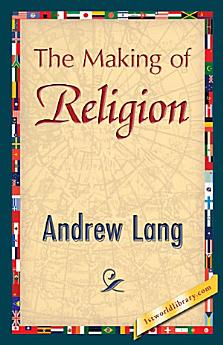The Making of Religion
joulu 2007 · 1st World Publishing
E-kirja
428
sivuja
family_home
Kelvollinen
info
reportArvioita ja arvosteluja ei ole vahvistettu Lue lisää
Tietoa tästä e-kirjasta
The modern Science of the History of Religion has attained conclusions which already possess an air of being firmly established. These conclusions may be briefly stated thus: Man derived the conception of 'spirit' or 'soul' from his reflections on the phenomena of sleep, dreams, death, shadow, and from the experiences of trance and hallucination. Worshipping first the departed souls of his kindred, man later extended the doctrine of spiritual beings in many directions. Ghosts, or other spiritual existences fashioned on the same lines, prospered till they became gods. Finally, as the result of a variety of processes, one of these gods became supreme, and, at last, was regarded as the one only God. Meanwhile man retained his belief in the existence of his own soul, surviving after the death of the body, and so reached the conception of immortality. Thus the ideas of God and of the soul are the result of early fallacious reasonings about misunderstood experiences. It may seem almost wanton to suggest the desirableness of revising a system at once so simple, so logical, and apparently so well bottomed on facts. But there can never be any real harm in studying masses of evidence from fresh points of view.
Tietoja kirjoittajasta
Andrew Lang was born at Selkirk in Scotland on March 31, 1844. He was a historian, poet, novelist, journalist, translator, and anthropologist, in connection with his work on literary texts. He was educated at Edinburgh Academy, St. Andrews University, and Balliol College, Oxford University, becoming a fellow at Merton College. His poetry includes Ballads and Lyrics of Old France (1872), Ballades in Blue China (1880--81), and Grass of Parnassus (1888--92). His anthropology and his defense of the value of folklore as the basis of religion is expressed in his works Custom and Myth (1884), Myth, Ritual and Religion (1887), and The Making of Religion (1898). He also translated Homer and critiqued James G. Frazer's views of mythology as expressed in The Golden Bough. He was considered a good historian, with a readable narrative style and knowledge of the original sources including his works A History of Scotland (1900-7), James VI and the Gowrie Mystery (1902), and Sir George Mackenzie (1909). He was one of the most important collectors of folk and fairy tales. His collections of Fairy books, including The Blue Fairy Book, preserved and handed down many of the better-known folk tales from the time. He died of angina pectoris on July 20, 1912.
Arvioi tämä e-kirja
Kerro meille mielipiteesi.
Tietoa lukemisesta
Älypuhelimet ja tabletit
Asenna Google Play Kirjat ‑sovellus Androidille tai iPadille/iPhonelle. Se synkronoituu automaattisesti tilisi kanssa, jolloin voit lukea online- tai offline-tilassa missä tahansa oletkin.
Kannettavat ja pöytätietokoneet
Voit kuunnella Google Playsta ostettuja äänikirjoja tietokoneesi selaimella.
Lukulaitteet ja muut laitteet
Jos haluat lukea kirjoja sähköisellä lukulaitteella, esim. Kobo-lukulaitteella, sinun täytyy ladata tiedosto ja siirtää se laitteellesi. Siirrä tiedostoja tuettuihin lukulaitteisiin seuraamalla ohjekeskuksen ohjeita.








